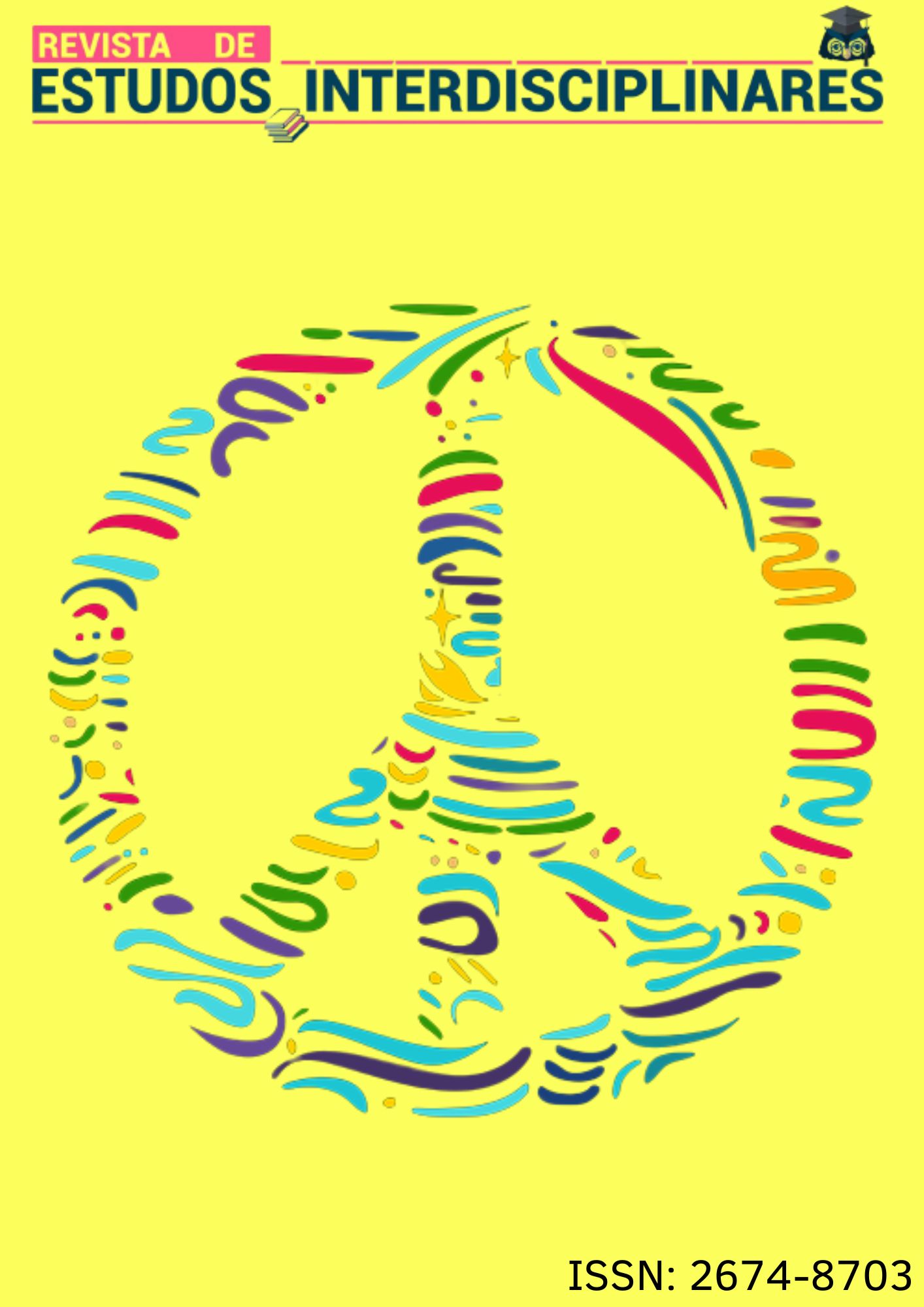PUBLICAÇÕES SOBRE GAMIFICAÇÃO NO PERÍODO DE 2011 A 2020:
UM ESTUDO BIBLIOMÉTRICO NA BASE DE DADOS WEB OF SCIENCE
Visualizações: 248DOI:
https://doi.org/10.56579/rei.v5i4.732Palabras clave:
Gamificação, Estudo bibliométrico, Aprendizagem baseada em jogos, TIC, Tecnologia na educaçãoResumen
O objetivo deste artigo foi analisar o panorama das publicações sobre gamificação no contexto internacional, compreendendo a última década (2011-2020). Para isso, foi realizado um estudo bibliométrico que possibilitou verificar as características das publicações. Os resultados indicam que a produção científica sobre gamificação é maior nas áreas de Education Educational Research (Pesquisa Educacional e em Educação) e Computer Science (Ciência da Computação). No que tange ao idioma, predominam as publicações em inglês representando aproximadamente 93.43% dos artigos publicados, seguindo uma tendência mundial. Os resultados, possibilitam traçar padrões de produtividade sobre o tema gamificação possibilitando fomentar a construção do conhecimento multidisciplinar, e apontar possíveis a lacunas de pesquisa.
Descargas
Citas
AURA, Isabella; HASSAN, Lobna; HAMARI, Juho. Teaching within a Story: Understanding storification of pedagogy. International Journal of Educational Research, v. 106, p. 101728, 2021. DOI: https://doi.org/10.1016/j.ijer.2020.101728
CONNOLLY, Thomas M. et al. A systematic literature review of empirical evidence on computer games and serious games. Computers & education, v. 59, n. 2, p. 661-686, 2012. DOI: https://doi.org/10.1016/j.compedu.2012.03.004
DICHEVA, Darina et al. Gamification in education: A systematic mapping study. Journal of Educational Technology & Society, v. 18, n. 3, p. 75-88, 2015.
DOMÍNGUEZ, Adrián et al. Gamifying learning experiences: Practical implications and outcomes. Computers & education, v. 63, p. 380-392, 2013. DOI: https://doi.org/10.1016/j.compedu.2012.12.020
GAMIFIN; GAMIFIN CONFERENCE. Disponível em: https://gamifinconference.com/ . Acesso: 15.01.21.
GG; GAMIFICATION GROUP. Disponível em: https://www.tut.fi/Gamification/members/j-hamari/. Acesso: 15.01.21.
GIRARD, Coralie; ECALLE, Jean; MAGNAN, Annie. Serious games as new educational tools: how effective are they? A meta‐analysis of recent studies. Journal of computer assisted learning, v. 29, n. 3, p. 207-219, 2013. DOI: https://doi.org/10.1111/j.1365-2729.2012.00489.x
HAMARI, Juho. Transforming homo economicus into homo ludens: A field experiment on gamification in a utilitarian peer-to-peer trading service. Electronic commerce research and applications, v. 12, n. 4, p. 236-245, 2013.
HAMARI, Juho. Transforming homo economicus into homo ludens: A field experiment on gamification in a utilitarian peer-to-peer trading service. Electronic commerce research and applications, v. 12, n. 4, p. 236-245, 2013. DOI: https://doi.org/10.1016/j.elerap.2013.01.004
HAMARI, Juho; HASSAN, Lobna; DIAS, Antonio. Gamification, quantified-self or social networking? Matching users’ goals with motivational technology. User Modeling and User-Adapted Interaction, v. 28, n. 1, p. 35-74, 2018. DOI: https://doi.org/10.1007/s11257-018-9200-2
HAMARI, Juho; KOIVISTO, Jonna; SARSA, Harri. Does gamification work?--a literature review of empirical studies on gamification. In: 2014 47th Hawaii international conference on system sciences. Ieee, 2014. p. 3025-3034. DOI: https://doi.org/10.1109/HICSS.2014.377
HANUS, Michael D.; FOX, Jesse. Assessing the effects of gamification in the classroom: A longitudinal study on intrinsic motivation, social comparison, satisfaction, effort, and academic performance. Computers & education, v. 80, p. 152-161, 2015. DOI: https://doi.org/10.1016/j.compedu.2014.08.019
HASSAN, Lobna; DIAS, Antonio; HAMARI, Juho. How motivational feedback increases user’s benefits and continued use: A study on gamification, quantified-self and social networking. International Journal of Information Management, v. 46, p. 151-162, 2019. DOI: https://doi.org/10.1016/j.ijinfomgt.2018.12.004
HEYWARD, Paul. Emotional Engagement Through Drama: Strategies to Assist Learning through Role-Play. International Journal of Teaching and Learning in Higher Education, v. 22, n. 2, p. 197-204, 2010.
KLOCK, Ana Carolina Tomé et al. Tailored gamification: A review of literature. International Journal of Human-Computer Studies, p. 102495, 2020. DOI: https://doi.org/10.1016/j.ijhcs.2020.102495
LINKEDIN. Disponível em: https://es.linkedin.com/in/jomartpa . Acesso: 15.01.21.
MARTÍ-PARREÑO, J.; GALBIS-CÓRDOVA, A.; CURRÁS-PÉREZ, R. Teachers’ beliefs about gamification and competencies development: A concept mapping approach. Innovations in Education and Teaching International, p. 1–11, 2019. doi:10.1080/14703297.2019.1683464 DOI: https://doi.org/10.1080/14703297.2019.1683464
MCGONIGAL, Jane. Reality is broken: Why games make us better and how they can change the world. Penguin, 2011.
MONTOLA, Markus et al. Applying game achievement systems to enhance user experience in a photo sharing service. In: Proceedings of the 13th International MindTrek Conference: Everyday Life in the Ubiquitous Era. 2009. p. 94-97. DOI: https://doi.org/10.1145/1621841.1621859
NELSON, Mark J. Soviet and American precursors to the gamification of work. In: Proceeding of the 16th international academic MindTrek conference. 2012. p. 23-26. DOI: https://doi.org/10.1145/2393132.2393138
SEABORN, Katie; FELS, Deborah I. Gamification in theory and action: A survey. International Journal of human-computer studies, v. 74, p. 14-31, 2015. DOI: https://doi.org/10.1016/j.ijhcs.2014.09.006
SIMÕES, Jorge; REDONDO, Rebeca Díaz; VILAS, Ana Fernández. A social gamification framework for a K-6 learning platform. Computers in Human Behavior, v. 29, n. 2, p. 345-353, 2013. DOI: https://doi.org/10.1016/j.chb.2012.06.007
THOM, Jennifer; MILLEN, David; DIMICCO, Joan. Removing gamification from an enterprise SNS. In: Proceedings of the acm 2012 conference on computer supported cooperative work. 2012. p. 1067-1070. DOI: https://doi.org/10.1145/2145204.2145362
Descargas
Publicado
Cómo citar
Número
Sección
Licencia
La Revista de Estudios Interdisciplinares adopta la Licencia Creative Commons Atribución 4.0 Internacional (CC BY 4.0), que permite compartir y adaptar el trabajo, incluso con fines comerciales, siempre que se otorgue la atribución adecuada y se reconozca la publicación original en esta revista.


